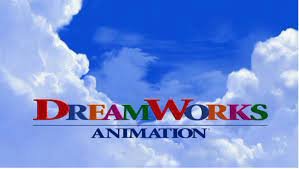I teach my graduate students and coaching clients that stories — the narratives we write in novels, TV series and movies — are not real life. It sounds eye-rollingly obvious, but it’s worth a closer look.
Because stories are not real, they follow rules that don’t apply to real life. In some ways, in fact, movie stories and real life couldn’t be more different.
In Hollywood-style stories, for example, people change in big consequential ways as a direct result of the pressure circumstances place on them, filtered through their internal values. Dorothy realizes she needn’t wander to find love and happiness. Luke Skywalker tries letting go of his attachments in order to achieve his aims. Peter Parker learns that with great power, etc.
On the infrequent occasions that our protagonists don’t change, they effect change. They change the world. Superman turns back time. Forest Gump links American society through time and space. Any Harrison Ford movie.
This fabulous arc of change gives us hope, teaches us a lesson, simply entertains, or some combination of the three. Whether the ending is happy, sad, or ironic, it satisfies.
In real life, it’s nigh impossible to really know who people are in the first place, and so very difficult to know whether they’ve changed. If you decide they have changed in some fundamental way, do you really know why? Compared to a screenplay, real life is staggeringly complex. Screen narratives are to real life as arithmetic is to string theory.
The linearity of fiction is one of things that make it compelling. We’ll watch, rapt, every major character in a well-written movie because, among other things, they arc: their personal narratives have a beginning, middle and end, with twists and turns, soul-searching and epiphanies, apogees and nadirs. These are fascinating “people."
A grasp of this concept, and a constant awareness of it, is one of the single biggest boosts you can give to your writing.
Your work should be trying to say something. Characters and narratives are the tools you use to say that thing. Believe that they’re anything like life is to be telling yourself a story.
Even when a writer comes across a true-life story and knows it would make a great script, down deep inside they know — if they’re good — that the real-life events are merely a box of jumbled parts that can be assembled and augmented into becoming a good piece. Take a look at two different movies or TV series that cover the same real-life subject to see what I mean.
The trick is to use various hacks, tricks and techniques to make these characters feel real, and the stories seem organic. Give your protagonist quirky and seemingly random habits and mannerisms. Throw in the forces of chance or nature — a sudden sunshower, a fender-bender, cancer — to remind the viewer of life’s vagaries. Leave some things unexplained.
I have found this to be a powerful lesson in writing. But for me, it’s equally powerful as a lesson in life.
We read the news that someone’s written (I used to be one of the someones.) The journalist has done their best to communicate the facts with some fairness, but they almost inevitably apply storytelling tools, and that makes the piece inherently false, or at least merely one truth among many possible ones. Yet the news-consuming public, myself included, creates thoughts, makes feelings and comes to conclusions based on this journalism. And we do it by applying the same tools of fiction.
As human beings, we are hardwired to create, tell, absorb and believe stories. It’s simply what we do.
But is there anyone who can really say with surety what the story is in any of the half-dozen blazing hotspots around the world right now? Europe? The Middle East? Washington, D.C.? Who’s the good guy? Who’s the bad guy? Which was the inciting incident? Was it something that happened a month ago? Seven years ago? Somewhere in the Old Testament? Life is unrelentingly, maddeningly, violently sloppy.
I’m not trying to promote nihilism. To the contrary, I am arguing that the only way we have a chance to make any sense of real life, and to bring some meaning to it, is to start by understanding that none of it is a movie. It’s a swirling mass of matter and energy, a billion stars going supernova and then being reborn, a planet spinning around a sun, which spins around a galaxy, which spins around a Something. It is, as the greatest storyteller in history once proclaimed using numbers, all relative.
When you write, be clear about what you want to say. Be sure about your protagonist’s arc. Be definite about the structure of your piece. But when you close your laptop and re-enter the real world, holster your certainty gun. Use your empty hand to wave at the smoke of suffering around you. When the wisps part, you’ll see another human being. Don’t cast them in your life-movie. Resist the irresistible urge to write a script about them, about yourself, about the relationship. Just keep your eyes, ears and nostrils open and see what happens.
The greatest adventure is the one without a plot. It’s not a movie. It’s real life.









